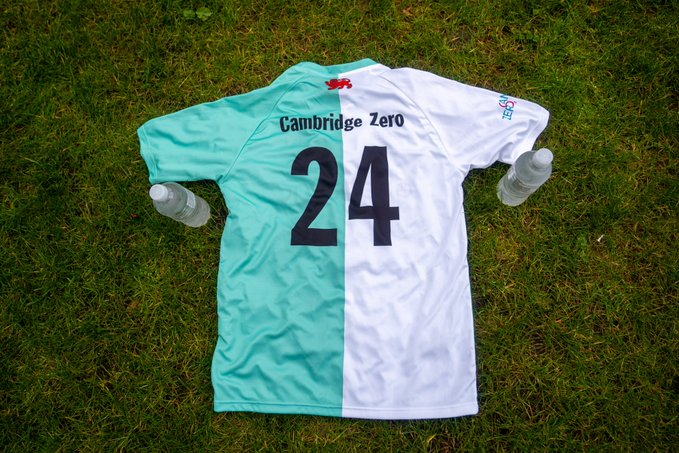
Palm Hills allocates EGP 30 m for backing Egyptian athletes
Palm Hills, Egypt’s leading real estate developer, allocated EGP 30 million for supporting Egyptian athletes under ...

Men’s and women’s of Cambridge University Association Football Club (CUAFC) wore recycled kits made from more than 2,000 plastic half-liter bottles, approximately 30 bottles per player, at Varsity matches on March 15, 2024.
CUAFC took the same measure in the 2023 Varsity matches with teams wearing recycled kits made from 2.500 plastic bottles.
Football’s world body FIFA estimates there are more than 200 million players on the planet and billions of supporters, according to an article published by Cambridge University.
Women’s Blues Co-Captain Abbie Hastie said the idea that just football and its supporters alone could cut billions of tons of plastic waste across the planet with their choice of a bit of kit was inspiring.
“Saving the planet is the biggest goal any athlete could score.”
To produce the kits, post-consumer PET plastic bottles are first shredded into small pieces in a recycling plant and cleaned. The parts are melted and the resulting mass is pressed into the desired shape by extrusion. From this the yarn is produced and further processed into fabric which is used to make clothing.
The shirts, socks and shorts have been developed by Appareal, a Swiss-based company whose mission is to provide sustainable clothing from recycled sources.
Having read the College’s Sustainability Charter, Andy Wright, who is studying for a Masters in Crime and Thriller writing at Selwyn College, saw an opportunity to expand it through the use of sustainable sports clothing.
“Across the sporting industry, you can see a surge of investment in more responsible products to meet corporate strategic commitments, at the demands of stakeholders,” Wright said. “If the oldest football club in the world is putting its best foot forward, there’s hope for us all.”
Recycling one ton of PET waste saves 3.8 barrels of oil, with 86% less water consumption and 75% less energy consumption than conventional PET manufacturing, Wright said.
This year’s kit is made from OEKO-TEX certified recycled yarn, which is produced by recycling used plastic bottles. That cuts waste, saves on energy and fossil fuel use and reduces pollution. The kit is sponsored by the University’s climate change initiative Cambridge Zero and Cambridge-based technology firm RealVNC.
Palm Hills, Egypt’s leading real estate developer, allocated EGP 30 million for supporting Egyptian athletes under ...
Extreme weather events were the primary drivers in 18 countries where over 77 million people faced ...
Over 100 SDG-aligned projects with a total investment scope of $ 50 billion have been presented during the ...


اترك تعليقا